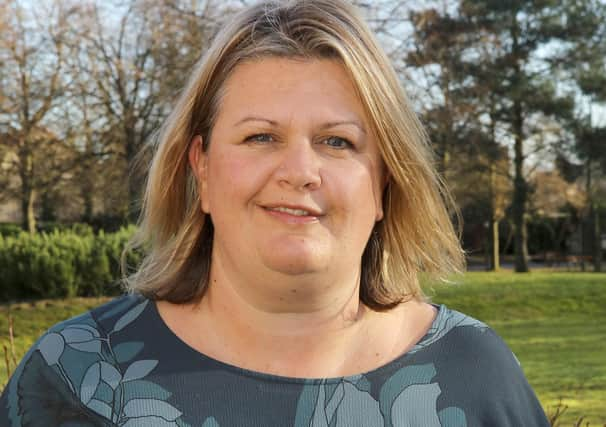Hospice welcomes research


Make Every Child Count, conducted by the Martin House Research Centre at the University of York, reveals the number of children in England with life-limiting or life-threatening conditions has increased to 86,625 in 2017/18, from 32,975 in 2001/02.
It also found that Yorkshire and the Humber has one of the highest levels of children with life-limiting conditions in England, and that overall prevalence is highest among babies under one – who also have the highest mortality rate.
Advertisement
Hide AdAdvertisement
Hide AdClair Holdsworth, director of clinical services at Martin House, said: “The findings reflect our own experience.
“We have seen a growing demand for our service every year, with a particular increase in referrals made antenatally and for babies.
“This study is an important tool to help us and other children’s hospices across the UK, along with our colleagues in the NHS and government work together to make sure we are providing the right services to children and their families so they can live their lives to the full, both now and in the future.”
The study, commissioned by UK children’s palliative care charity Together for Short Lives (TfSL) and funded by the True Colours Trust, aims to ensure services are properly planned, funded and delivered.
Advertisement
Hide AdAdvertisement
Hide AdIt used routinely collected hospital and death certificate data in England to provide an up-to-date count of children and young people with life-limiting and life-threatening conditions, as well as calculating how much the figure may rise by 2030 – estimating there will be at least an 11 per cent rise.
Key findings included the prevalence is highest for congenital abnormalities.
While under ones have the highest incidence of life-limiting conditions, the number of young people living to age 19 is increasing – although there is a large number of deaths among young people in their early 20s.
Although the increase may be partly due to better recording of hospital data and improved diagnosis, the study suggests it is also likely to rise because children are living longer, thanks to advances in care and medical technology.
Advertisement
Hide AdAdvertisement
Hide AdMartin House, which cares for children and young people with life-limiting conditions across West, North and East Yorkshire, set up the Martin House Research Centre in conjunction with the University of York and University of Leeds in 2017 to help further research into children’s palliative care.
Clair added: “This study reaffirms the need for high quality children’s palliative care.
“Obviously at the moment we are all very concerned with coronavirus and its impact during this current crisis, but in the longer term it shows there is a lot of work to be done to ensure more children get the care they need.
“This includes the direct care we offer to families, both at the hospice and in the community, but also our work with our colleagues in hospitals and nursing teams to empower them to support children and their families.”
For more information about Martin House and its services, visit www.martinhouse.org.uk.
Comment Guidelines
National World encourages reader discussion on our stories. User feedback, insights and back-and-forth exchanges add a rich layer of context to reporting. Please review our Community Guidelines before commenting.